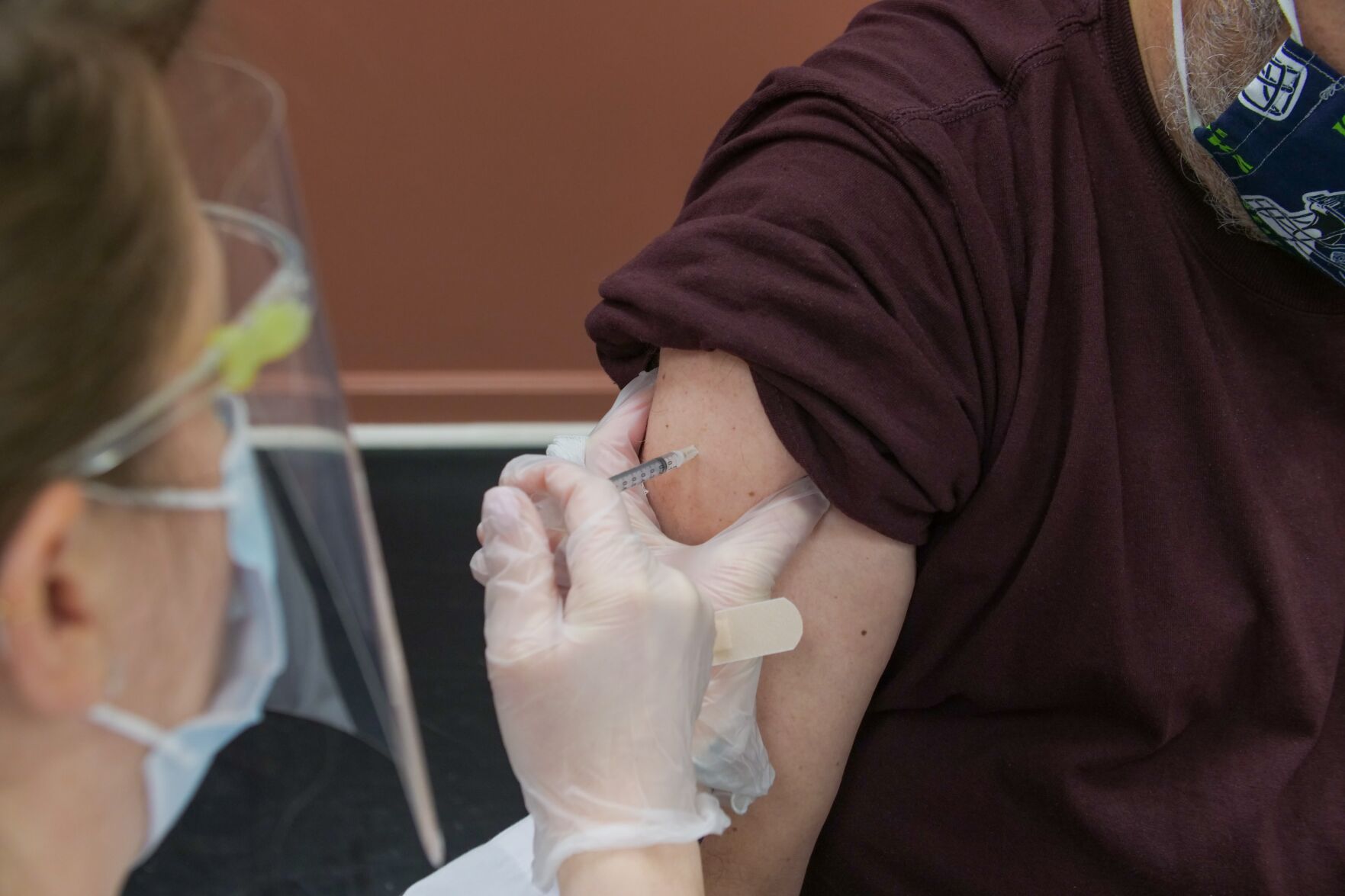As the rate of COVID-19 vaccination continues to increase in Arkansas, access and availability of vaccines is still a struggle in some rural areas of Arkansas. The University of Arkansas System Division of Agriculture and ARcare have been hosting clinics in some of the most rural sites with low vaccination rates, and more clinics are planned.
In the past six months, agents with the Cooperative Extension Service, part of the Division of Agriculture, have coordinated more than a dozen health clinics, serving more than 500 Arkansans. The clinics provided first and second doses of the COVID vaccines, flu shots and most recently, COVID boosters.
ARcare health care personnel administer the vaccines, and extension agents promote the clinics in the counties they serve and provide research-based resources like health promotion and educational materials.
“We are proud of the impacts these clinics are having,” said Bryan Mader, assistant professor and extension health specialist for the Division of Agriculture. “Our goal was to provide resources to residents in rural Arkansas communities, particularly those with limited access, and we have made several inroads.”
At the start of November, 58% of Arkansans had received at least one dose of COVID-19 vaccine, compared to 67% of residents nationwide. In Arkansas, 48% of residents are fully vaccinated, compared with 58% nationally. Just 10% of Americans have received a booster dosage, according to the COVID Data tracker from CDC.
"ARcare is proud to partner with the U of A System Division of Agriculture Cooperative Extension Services and USDA,” said Lauren Fields, chief nursing officer with ARcare. “Our missions align, and both of our organizations look for opportunities to provide care to individuals in rural areas who for one reason or another cannot get the care needed. If we are able to make services accessible to even one individual, we have made a difference and that is the reason for our existence."
Extension’s partnership with ARcare has been the key to the clinics’ success, Mader said. “Their ability to provide care and screening services to over 500 rural Arkansans, and provide over 150 vaccines through our clinics, shows that every vaccine dose matters for reducing community spread of COVID-19 and ultimately working toward ending this pandemic in Arkansas,” he said.
The clinics are funded, in part, by the Extension Foundation and a U.S. Centers for Disease Control Immunization Education Grant to provide vaccine education in underserved areas. All of the clinics were in a six-county area that includes Cross, Woodruff, Jackson, Monroe, Prairie and Independence counties.
“These counties were selected due to the delay in vaccine availability and access earlier in the nationwide vaccine rollout,” Mader said. “Additionally, vaccine hesitancy in rural communities made it challenging to build momentum for vaccine uptake. Reducing vaccine hesitancy is a major goal of these grant activities.”
The first clinic, offered in April in Parkin in Cross County, served 47 people, Mader said. More clinics followed in McCrory in Woodruff County, Newport in Jackson County and Des Arc in Prairie County. Two additional clinics were offered in Woodruff County at The Warehouse, a community facility supported by the Woodruff County Cooperative Extension Service, ARcare, and the City of McCrory to provide resources for meal-planning, food preparation, nutrition, and health screenings.
Clientele of the Warehouse were accustomed to receiving health screenings during the monthly Warehouse event in McCrory.
“This all stopped when we pivoted to the drive through food distribution with the onset of COVID-19,” said Leigh Ann Bullington, extension’s Family and Consumer Science educator and former Woodruff County agent. “When drive-through vaccine clinics were offered, people were grateful for the opportunity to receive both COVID and flu vaccines without even leaving their vehicles.
“Transportation in Woodruff County like many other rural countries is often difficult for some of our most vulnerable population and often those in most need,” Bullington said. “To be able to offer them the chance to receive their vaccination at the same time they receive a food distribution was of great assistance in overcoming that barrier,” she said.
Extension agents are continuing to coordinate clinics to serve hard-to-reach populations. They have scheduled clinics to coincide with commodity distributions or near public housing since low-income residents are more apt to struggle with access.
Some of the future vaccine clinics will be with ARcare’s mobile unit.
“This will allow us to serve smaller communities and ensure their safety as booster doses become more readily available across the state,” Mader said.
To get vaccine information and resources, visit www.uaex.uada.edu/vaccines. For other extension programs in Arkansas, contact your local Cooperative Extension Service agent or visit www.uaex.uada.edu. Follow us on Twitter at @AR_Extension.




